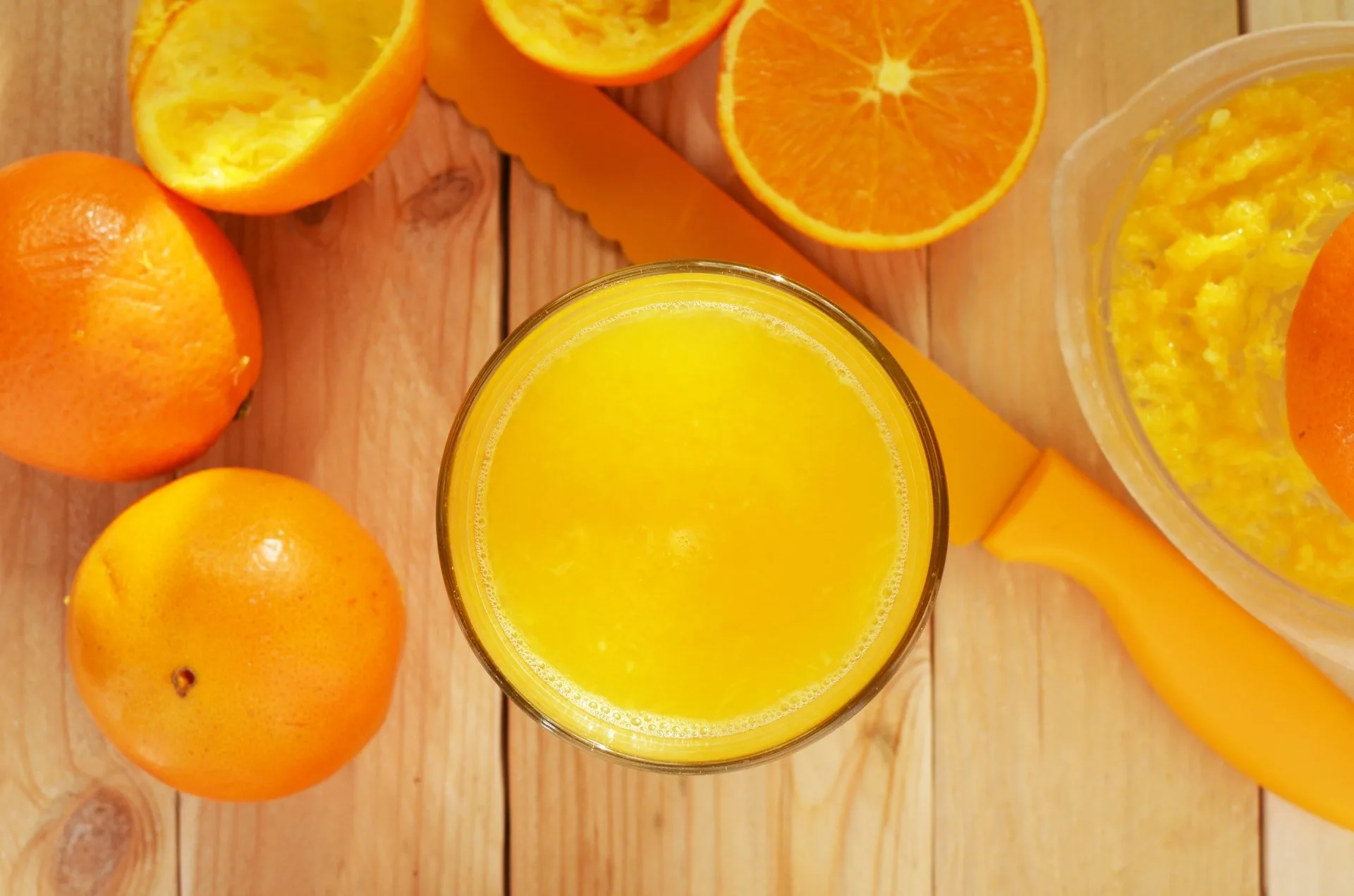It’s one of the most popular health drinks in the world – orange juice is constantly praised as a natural and healthy beverage and as a result, it’s become a long-time breakfast staple. However, as the health trend that is juicing continues to gain momentum, there are a few concerns over how healthy orange juice really is.
Yes, oranges themselves are rich in nutrients that the body can benefit from, but does this still apply to orange juice? For a beverage that’s enjoyed around the world, one has to wonder just how beneficial squeezing oranges to extract the juice is.
What’s in it?
Surprising to no one as it’s often the basis of its appeal, freshly squeezed orange juice is naturally high in vitamin C. What’s more, vitamin A, fiber, copper, and magnesium can also be found in a glass of orange juice.
Additionally, fresh juice is also rich in folate and potassium as well as antioxidants. In fact, research published in the journal Food and Nutrition Research found that consuming a daily amount of orange juice helped to significantly increase antioxidant status.
So with such a rich nutritional value, what benefits can a glass of OJ provide?
5 Orange juice benefits
1. It can protect you against kidney stones
Kidney stones are an incredibly painful condition, yet research has found that a classic glass of OJ may be exactly what you need to prevent it.
As mentioned, orange juice contains high levels of potassium, but it also contains calcium and citrate – 3 compounds that can help to reduce the risk of kidney stones. According to a study published in the Clinical Journal of the American Society of Nephrology, drinking a glass of orange juice can help to reduce the risk of kidney stones by 12%.
2. It boosts your immune system 
Orange juice is incredibly high in vitamin C and, according to the nutritional database, a single serving of the juice offers up to double the daily requirement of vitamin C.
As a result of the high presence of vitamin C, it works to stimulate the immune system and encourage it to protect the body against several diseases, such as flu or colds.
3. It contains anti-cancer properties
Vitamin C works as an antioxidant, which means it helps to protect the body from the damaging effects of free radicals – compounds that can increase the risk of diseases such as cancer.
Additionally, orange juice also contains the antioxidant hesperidin, and according to research published in the Journal of Biological Inorganic Chemistry, this compound can help to reduce tumor growth and encourage the death of cancer cells.
4. It helps to reduce inflammation
Inflammation is the body’s natural response when it’s attempting to fight a disease or infection. However, when this becomes chronic, then it becomes a catalyst for a number of chronic diseases that include metabolic syndrome, heart disease, and certain cancers. As a result, it’s always important to keep your inflammation in check and one way to do so would be by drinking orange juice.
According to an archived study, orange juice contains anti-inflammatory properties that may help to reduce the inflammatory markers attached to chronic diseases (1).
5. It may help protect your heart health
Heart disease continues to be the leading cause of death worldwide, yet a glass of orange juice may help curb these figures. This is because drinking orange juice may help to reduce the risk factors associated with heart disease.
For instance, research published in the journal Lipids in Health and Disease found that orange juice helped to reduce the levels of both total and ‘bad LDL cholesterol all while increasing the levels of ‘good’ HDL cholesterol.

Photo by Briona Baker on Unsplash
But is all orange juice good juice?
Now it’s important to remember that the freshly squeezed orange juice that you make in the comfort of your home is different from the orange juice that you’ll find in the grocery store. This is because most processed orange juices contain added sugar, preservatives, and extra calories.
As a result, these store-bought juices can increase blood sugar levels, and thus increase the risk of diabetes as well as weight gain (2).
As a result, it’s preferable to either freshly squeeze your own orange juice. If you’re looking to purchase orange juice, avoid frozen, canned, or concentrated orange juices. Rather only buy orange juices that carry the label 100% freshly squeezed. It’s also important to make sure that they don’t contain any added sugars.
Do I still need regular oranges?
Yes, orange juice contains most of the nutrients found in a regular orange but that doesn’t mean that you should stop replacing the actual fruit with its juice alternative. Oranges are a great snack that you can enjoy on the go, and there’s no reason as to why you need to substitute it for a juice alternative. Nonetheless, if you really need to start off your day right, you could never go wrong with a glass of OJ.
References
Aptekmann, N. P., & Cesar, T. B. (2013). Long-term orange juice consumption is associated with low LDL-cholesterol and apolipoprotein B in normal and moderately hypercholesterolemic subjects. Lipids in health and disease, 12, 119. doi:10.1186/1476-511X-12-119
Asgary, S., Keshvari, M., Afshani, M. R., Amiri, M., Laher, I., & Javanmard, S. H. (2014). Effect of fresh orange juice intake on physiological characteristics in healthy volunteers. ISRN nutrition, 2014, 405867. doi:10.1155/2014/405867
Dourado, G. K. Z. S., & Cesar, T. B. (2015). Investigation of cytokines, oxidative stress, metabolic, and inflammatory biomarkers after orange juice consumption by normal and overweight subjects. Food & Nutrition Research, 59. https://doi.org/10.3402/fnr.v59.28147
Etcheverry, S.B., Ferrer, E.G., Naso, L. et al. J Biol Inorg Chem (2008) 13: 435. https://doi.org/10.1007/s00775-007-0332-9
Ferraro, P. M., Taylor, E. N., Gambaro, G., & Curhan, G. C. (2013). Soda and other beverages and the risk of kidney stones. Clinical journal of the American Society of Nephrology : CJASN, 8(8), 1389–1395. doi:10.2215/CJN.11661112
Hägele, F. A., Büsing, F., Nas, A., Aschoff, J., Gnädinger, L., Schweiggert, R., … Bosy-Westphal, A. (2018). High orange juice consumption with or in-between three meals a day differently affects energy balance in healthy subjects. Nutrition & diabetes, 8(1), 19. doi:10.1038/s41387-018-0031-3



![women [longevity live]](https://longevitylive.com/wp-content/uploads/2020/01/photo-of-women-walking-down-the-street-1116984-100x100.jpg)











OJ in the store does NOT contain added sugar.
Hi J,
Thank you so much for your comment. While 100% organic orange juice does not contain added sugars, the ones in the store that do not claim the 100% label do. This is why it is important to always read labels to ensure that your product of choice is beneficial for your health.